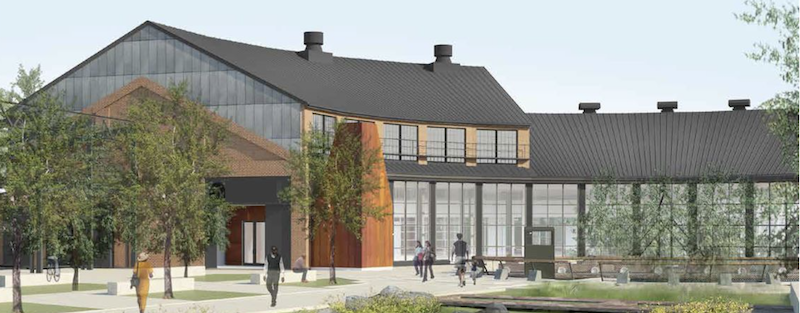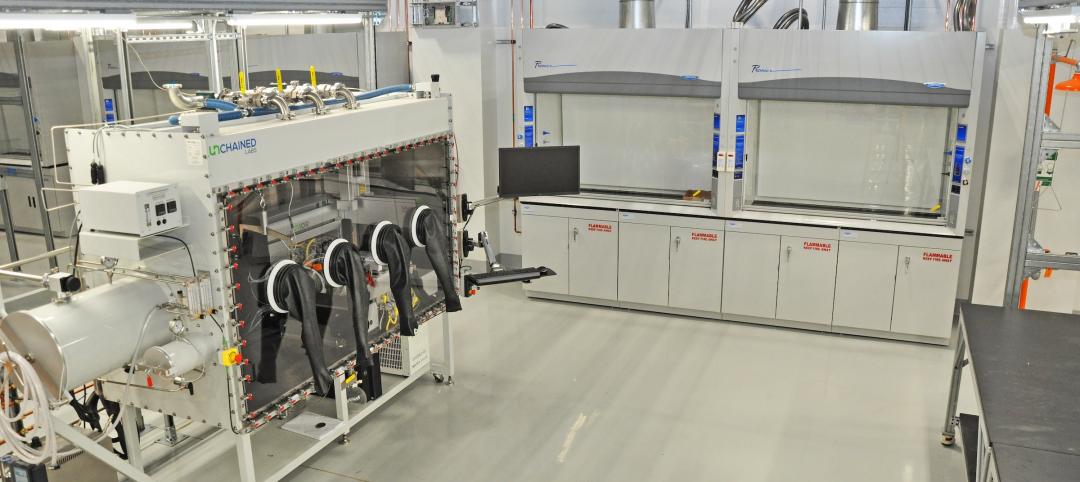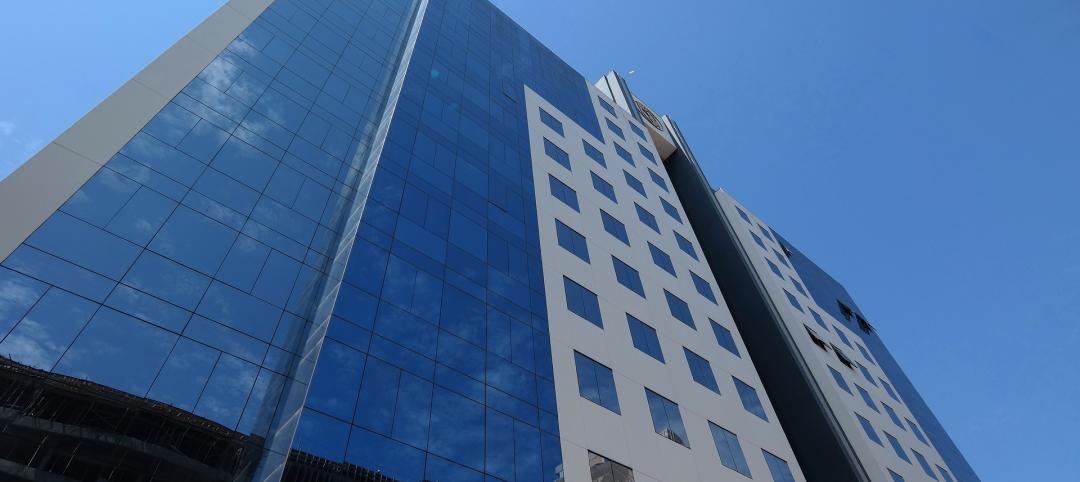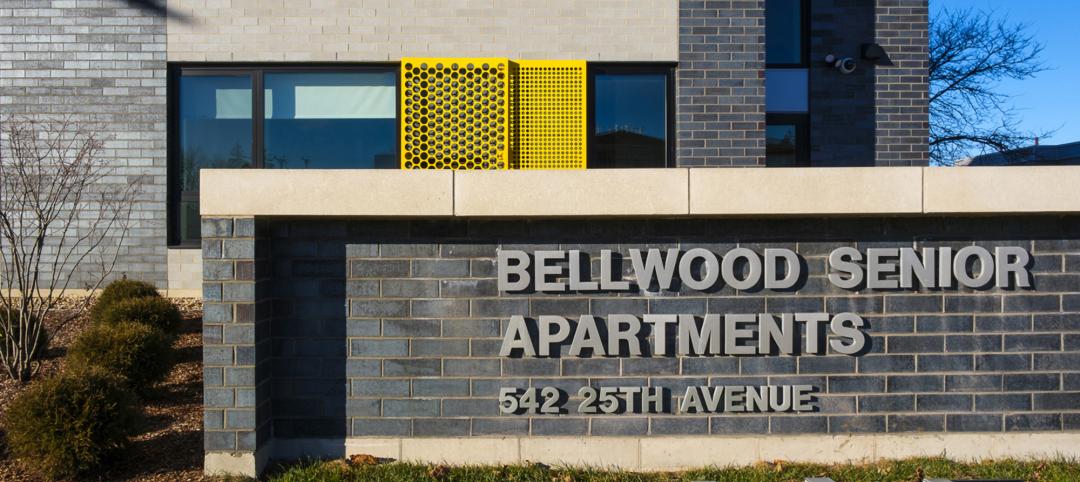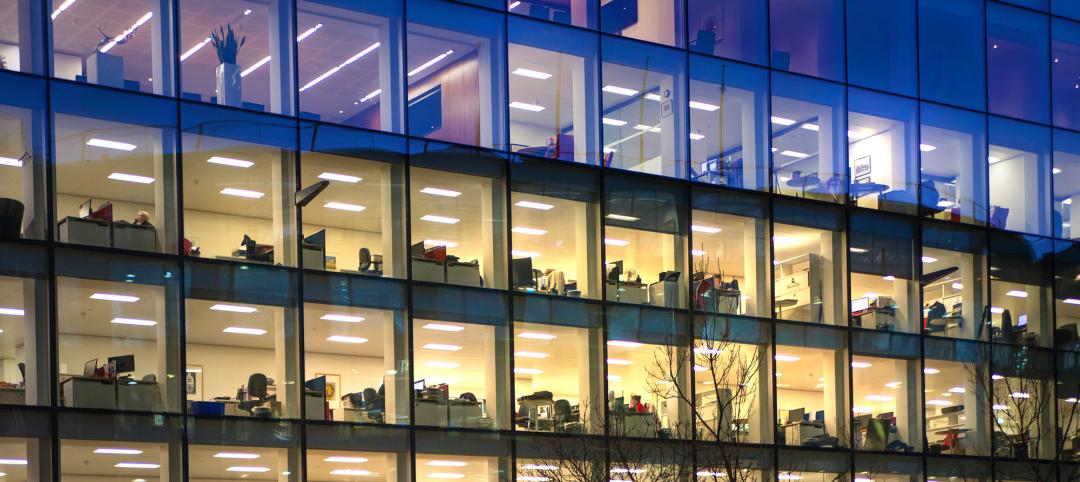A progress report on Hazelwood Green, the 178-acre redevelopment project in Pittsburgh, finds its current stage focusing on exterior amenities.
The redevelopment team led by Almono LP—an investment partnership of the Richard King Mellon Foundation, the Heinz Endowments, and the Benedum Foundation—has designed, funded, and completed a two-acre Plaza north of Mill 19, the quarter-mile-long skeleton of a former steel mill that sits on 12.6 acres of Hazelwood Green’s riverfront acres and, in its post-industrial reincarnation, offers 264,000 sf of rentable space to 21st-Century oriented manufacturing and automation tenants.
The plaza will serve as the civic heart of Hazelwood Green. It includes gardens, lawns, trees, and native vegetation, as well as a solar canopy, a tiered water feature, and hardscape surfaces for events and other uses. (Almono has engaged a team led by the urban planning firm Street Plans to devise and execute the plaza’s programming.)
Almono is also working with the Pittsburgh Parks Conservancy on placing a tree nursery on-site. That nursery would include tree species that mitigate air pollution, and a meadow with seating options.
In concert with agencies that include the Pennsylvania Environmental Council, Almono is working on a master plan to improve accessibility to a 1.2-mile stretch along the riverfront. Also in the works are several mobility initiatives that include coordination with Pittsburgh’s Office of Public Art to engage local designers and fabricators to add eight bus shelters to the site. (RFP responses are due next month, with the goal of installing the shelters later next year.)
Almono and the city want to add curbside charging stations for electric vehicles, and Almono has entered into an agreement with Healthy Ride to install a bikeshare station at the plaza by next spring.
A NEW PLATFORM FOR ENTREPRENEURS
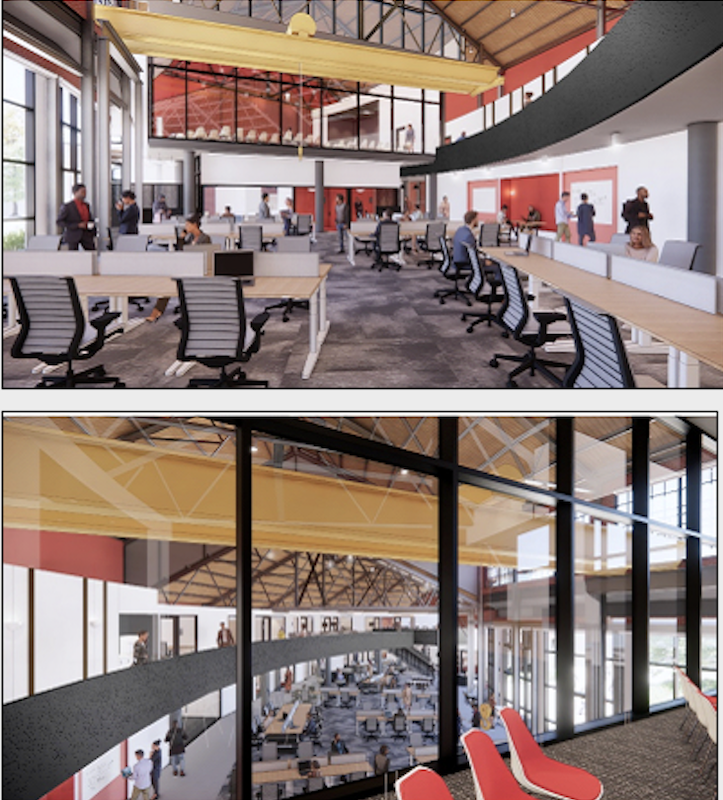
The Roundhouse's interior will have ample collaborative spaces for entrepreneurs.
The Hazelwood Green redevelopment is also proceeding with the adaptive reuse of existing buildings on-site. This spring should see the completion of the reconstruction of the Roundhouse, which dates back to the late 1880s, and once was used to stabilize train engines for servicing. This building is getting a $12.5 million rehabilitation and will re-emerge as the 26,000-sf home to an innovation center for OneValley, a global entrepreneurship platform formerly known as GSVlabs.
“The Roundhouse communicates its industrial origins, and when you are in the space, you recognize that it carries with it the memory and residue of over 100 years of 20th-Century activity and life,” says Anne Chen, principal with GBBN, this project’s architect and interior designer. “The design vision for this remarkable building has focused on connecting to its important role in Pittsburgh history while repositioning the space to usher in a new future of community enrichment, technology, manufacturing and entrepreneurialism.”
Other firms on the Roundhouse project team include WBCM (SE), Buro Happold (MEP), LaQuatra Bonco (landscape architect), KU Resources (CE), evolveRA (LEED management), PJ Dick (CM), and Grand View Development (owner’s rep). U3 Advisors, the development advisor for Hazelwood Green, has also been involved in the Roundhouse remake.
The Roundhouse’s original turntable surface is being repurposed to function as an outdoor relaxation space with wheeled seating on the rails. The building’s original bridge crane was recently rehung in the space. Overhead engine bay doors are being replaced with a glass curtainwall system to bring natural light into the building.
BIG PLANS OVER THE NEXT TWO DECADES
Local small manufacturers and artisans, working with the custom fabricator Monmade, have been engaged to design elements of the Roundhouse that include signage, interior lighting, wall tile, custom benches, and sliding doors.
Almono is seeking LEED Gold certification for the Roundhouse, whose stormwater management includes the use of bioswales and a large rain garden to keep and filter water on site.
Over the next two decades, Hazelwood Green’s redevelopment plan calls for 31 acres of open public space, 3,500 housing units, and 4.4 million sf of commercial building space.
Related Stories
Adaptive Reuse | Mar 26, 2024
Adaptive Reuse Scorecard released to help developers assess project viability
Lamar Johnson Collaborative announced the debut of the firm’s Adaptive Reuse Scorecard, a proprietary methodology to quickly analyze the viability of converting buildings to other uses.
Adaptive Reuse | Mar 21, 2024
Massachusetts launches program to spur office-to-residential conversions statewide
Massachusetts Gov. Maura Healey recently launched a program to help cities across the state identify underused office buildings that are best suited for residential conversions.
Adaptive Reuse | Mar 15, 2024
San Francisco voters approve tax break for office-to-residential conversions
San Francisco voters recently approved a ballot measure to offer tax breaks to developers who convert commercial buildings to residential use. The tax break applies to conversions of up to 5 million sf of commercial space through 2030.
Sustainability | Mar 13, 2024
Trends to watch shaping the future of ESG
Gensler’s Climate Action & Sustainability Services Leaders Anthony Brower, Juliette Morgan, and Kirsten Ritchie discuss trends shaping the future of environmental, social, and governance (ESG).
Adaptive Reuse | Mar 7, 2024
3 key considerations when converting a warehouse to a laboratory
Does your warehouse facility fit the profile for a successful laboratory conversion that can demand higher rents and lower vacancy rates? Here are three important considerations to factor before proceeding.
Urban Planning | Feb 5, 2024
Lessons learned from 70 years of building cities
As Sasaki looks back on 70 years of practice, we’re also looking to the future of cities. While we can’t predict what will be, we do know the needs of cities are as diverse as their scale, climate, economy, governance, and culture.
Adaptive Reuse | Feb 4, 2024
Corporate modernist buildings increasingly popular fodder for adaptive reuse projects
Beginning in the 1970s adaptive reuse projects transformed 19th and early 20th Century buildings into distinctive retail destinations. Increasingly, developers of adaptive reuse projects are targeting outmoded corporate buildings of the 1950s to 1980s.
Luxury Residential | Jan 30, 2024
Lumen Fox Valley mall-to-apartments conversion completes interiors
Architecture and interior design firm Morgante Wilson Architects (MWA) today released photos of its completed interiors work at Lumen Fox Valley, a 304-unit luxury rental community and mall-to-apartments conversion.
Senior Living Design | Jan 24, 2024
Former Walgreens becomes affordable senior living community
Evergreen Real Estate Group has announced the completion of Bellwood Senior Apartments. The 80-unit senior living community at 542 25th Ave. in Bellwood, Ill., provides independent living options for low-income seniors.
Adaptive Reuse | Jan 23, 2024
Adaptive reuse report shows 55K impact of office-to-residential conversions
The latest RentCafe annual Adaptive Reuse report shows that there are 55,300 office-to-residential units in the pipeline as of 2024—four times as much compared to 2021.


